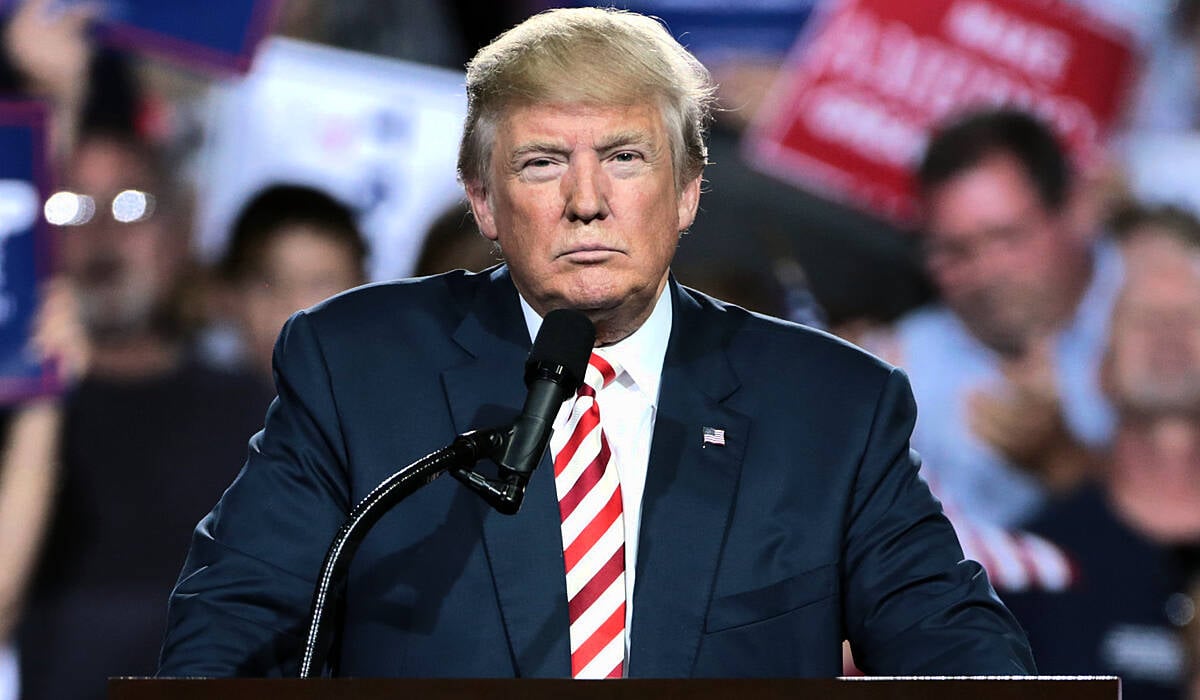Politics
Trump Considers ‘Dictator’ Image While Expanding D.C. Policing Powers

President Donald Trump raised eyebrows on August 25, 2025, by suggesting that many Americans might be receptive to the idea of a dictator in the White House. This statement emerged during an extensive 80-minute session in the Oval Office, where Trump signed executive orders aimed at enhancing federal oversight of policing in Washington, D.C.. While he insisted he does not see himself as a dictator, his comments have ignited discussions regarding his approach to governance.
During the session, Trump criticized the media and his detractors while defending his decision to deploy the National Guard in the capital. “They say, ‘We don’t need him. Freedom, freedom. He’s a dictator,’” Trump stated. “A lot of people are saying: ‘Maybe we’d like a dictator.’ I don’t like a dictator. I’m not a dictator. I’m a man with great common sense and a smart person.”
The president’s remarks come in the wake of his attempts to overturn the results of the 2020 election, which he lost to Joe Biden. Trump has indicated a desire to make a political comeback in the next election, claiming he would act as a “dictator on day one” if re-elected.
New Executive Orders Expand Federal Authority
The newly signed executive orders expand federal authority over law enforcement in D.C., a city where policing is traditionally managed by the mayor. Trump characterized these measures as vital for maintaining ‘law and order,’ yet he provided limited details on how they would be implemented. Critics argue that his comments highlight increasing concerns about democratic erosion under his administration.
Earlier this month, Trump ordered the National Guard into Washington, citing a purported rise in crime. However, crime rates in D.C. are currently at their lowest in three decades. The president’s justification for federal control of the city’s police force has drawn skepticism, given the actual crime statistics.
Trump has also suggested the possibility of deploying military forces to other cities, including Chicago and Baltimore, both governed by Democratic leaders. In June, he sent the National Guard to Los Angeles despite objections from local officials, including the city’s mayor and California’s governor.
As the political landscape evolves, Trump’s remarks and actions continue to provoke debate about the balance of power in American governance and the implications for democratic institutions. With the upcoming elections, the discourse surrounding his leadership style and policies will likely intensify.
-

 Top Stories2 months ago
Top Stories2 months agoTributes Surge for 9-Year-Old Leon Briody After Cancer Battle
-

 Entertainment3 months ago
Entertainment3 months agoAimee Osbourne Joins Family for Emotional Tribute to Ozzy
-

 Politics3 months ago
Politics3 months agoDanny Healy-Rae Considers Complaint After Altercation with Garda
-

 Top Stories3 months ago
Top Stories3 months agoIreland Enjoys Summer Heat as Hurricane Erin Approaches Atlantic
-

 World4 months ago
World4 months agoHawaii Commemorates 80 Years Since Hiroshima Bombing with Ceremony
-

 Top Stories2 months ago
Top Stories2 months agoNewcastle West Woman Patricia Foley Found Safe After Urgent Search
-

 Top Stories4 months ago
Top Stories4 months agoFianna Fáil TDs Urgently Consider Maire Geoghegan-Quinn for Presidency
-

 World4 months ago
World4 months agoCouple Convicted of Murdering Two-Year-Old Grandson in Wales
-

 World4 months ago
World4 months agoGaza Aid Distribution Tragedy: 20 Killed Amid Ongoing Violence
-

 World4 months ago
World4 months agoAristocrat Constance Marten and Partner Convicted of Infant Murder
-

 Top Stories3 months ago
Top Stories3 months agoClimbing Errigal: A Must-Do Summer Adventure in Donegal
-

 Top Stories3 months ago
Top Stories3 months agoHike Donegal’s Errigal Mountain NOW for Unforgettable Summer Views









